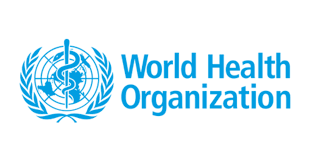The World Health Organisation (WHO) has warned of widespread disruptions in health services across 70 per cent of its surveyed country offices, attributing the crisis to sudden cuts and suspensions in Official Development Assistance (ODA) for health.
In a statement on Friday, WHO said the findings stemmed from a rapid assessment conducted between March and April 2025 across 108 of its country offices, primarily in low- and lower-middle-income nations. The organisation said the disruptions could have long-term consequences on global health systems if not addressed urgently.
The assessment revealed that many countries are struggling to fill the financial gaps created by the aid cuts, with some turning to domestic or alternative external funding. However, 24 per cent of WHO offices reported that the budget reductions were already driving up out-of-pocket expenses, disproportionately impacting poor and vulnerable populations.
Dr. Tedros Adhanom Ghebreyesus, WHO Director-General, described the findings as deeply concerning, noting that the sudden withdrawal of aid is affecting millions.
“Although these cuts are a shock, they are also pushing a shift from aid dependency to more sustainable, domestic-based self-reliance,” he said. “Many countries have requested WHO’s support, and we’re working with them to identify the most effective responses.”
He said the assessment provided early insights from WHO country offices, which work closely with national health ministries to guide policy and planning. The aim is to determine the most urgent support needs to prevent catastrophic health outcomes and closely monitor developments.
According to the report, all areas of health systems are affected by the aid cuts. The most commonly reported disruptions include: Health emergency preparedness and response (70%), Public health surveillance (66%), Service provision (58%), Humanitarian aid (56%), Health and care workforce (54%)
A third of countries reported disruptions across all health services, with severe effects on outbreak response, malaria, HIV, tuberculosis, STIs, family planning, and maternal and child health. In some regions, the extent of the disruptions was likened to those experienced during the peak of the COVID-19 pandemic.
The report also revealed that one-third of countries are facing critical shortages of essential medicines and health products, while over half have reported job losses in the health workforce and disruptions to training programmes.
More than 40 per cent of countries also noted issues with key health data systems, including surveillance, lab networks, and health management information systems.
Ghebreyesus said that 81 of the 108 WHO country offices had identified needs for support in areas such as innovative funding mechanisms, technical assistance, and capacity building.
He assured that the World Health Organisation (WHO) would continue to monitor the situation and collaborate with global health partners and donors to support immediate response efforts and foster long-term sustainability.
(NAN)


